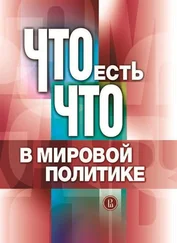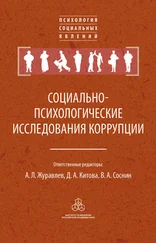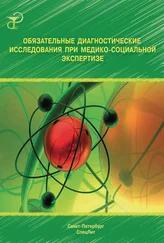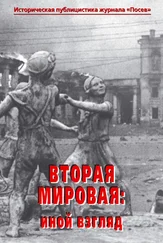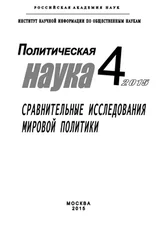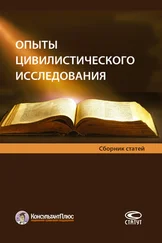George A. Kennedy, Classical Rhetoric and Its Christian and Secular Tradition from Ancient to Modern Times (Chapel Hill: University of North Carolina Press, 1980), с. 19; Эпиктет, Диатр 1, предисл.
Квинтилиан, Наст. ор 1, пред. 7–8; ср.: Диод. Сицил. 40.8.1.
Например, Сенека, Нрав. пис 108.6; Арий Дидим, Эпит 2.7.11k (с. 80, строка 35 – с. 82, строка 5, в кн.: Arius Didymus, Epitome of Stoic Ethics [ed. A. J. Pomeroy; SBLTT 44; Atlanta: Society of Biblical Literature, 1999]); Диог. Лаэрт. 6.1.5.
См.: Gerhardsson, Memory and Manuscript , с. 160–162; S. Safrai, «Education and the Study of the Torah», в кн.: The Jewish People in the First Century: Historical Geography, Political History, Social, Cultural and Religious Life and Institutions (2 vols.; ed. S. Safrai et al.; CRINT 1/1–2; Philadelphia: Fortress, 1974–1976), 2:945–970, цит. с. 966.
Несомненно, были причины, по которым язычники смотрели на иудеев как на «народ философов» (Menahem Stern, Greek and Latin Authors on Jews and Judaism [3 vols.; Jerusalem: Israel Academy of Sciences and Humanities, 1974–1984], 1:8–11, 46–50); и галилеяне, несмотря на некоторые обвинения против них, очевидно, были верны закону не менее жителей Иудеи (см.: Richard A. Horsley, Galilee: History, Politics, People [Valley Forge, Pa.: Trinity Press International, 1995], с. 152–155).
Ср. аргументы в пользу Евангелий как собраний воспоминаний очевидцев в кн.: Bauckham, Jesus and the Eyewitnesses . Даже если некоторые детальные аспекты тезиса Бокэма доказать невозможно, в целом его тезисы разоблачают неверность (или, по крайней мере, очень малую вероятность правдоподобия) радикальных предпосылок критики форм.
Об этом значении слова παρακολουθέω см.: Loveday Alexander, The Preface to Luke’s Gospel: Literary Convention and Social Context in Luke 1.1–4 and Acts 1.1 (SNTSMS 78; Cambridge: Cambridge University Press, 1993), с. 128–130.
См.: David P. Moessner, «The Appeal and Power of Poetics (Luke 1:1–4): Luke’s Superior Credentials (παρηκολουθηκότι), Narrative Sequence (καθεξῆς), and Firmness of Understanding (ἡ ἀσφάλεια) for the Reader», в кн.: Jesus and Heritage , ed. Moessner, с. 84–123, цит. с. 85–97; idem, «The Lukan Prologues in the Light of Ancient Narrative Hermeneutics: Παρηκολουθηκότι and the Credentialed Author», в кн.: Unity of Luke-Acts, ed. Verheyden, с. 399–417, цит. с. 413.
См., напр.: Фукидид 1.22.2; 5.26; Полибий 12.3.1–2; 14.4c.2–5; 12.4d.1–2; 12.9.2; 12.25e.1, 7; Диод. Сицил. 1.4.1; Аппиан, Рим. ист, пред. 12; далее об этом: Fornara, Nature of History , с. 47; Aune, Literary Environment, с. 81–82; Meister, «Historiography: Greece», с. 421; ср.: Геродот, История 1.1.
О ценности личного участия историка в описываемых событиях см., напр.: Samuel Byrskog, Story as History – History as Story: The Gospel Tradition in the Context of Ancient Oral History (WUNT 123; Tübingen: Mohr Siebeck, 2000; repr., Leiden: Brill, 2002), с. 58–64, 153–157.
См., напр.: Dibelius, Studies in Acts, с. 136; Joseph A. Fitzmyer, Luke the Theologian: Aspects of His Teaching (Mahwah, N. J.: Paulist Press, 1989), с. 11–16; William S. Kurz, Reading Luke-Acts: Dynamics of Biblical Narrative (Louisville: Westminster John Knox, 1993), с. 112–113.
См., напр.: Martin Hengel and Anna Maria Schwemer, Paul Between Damascus and Antioch: The Unknown Years (trans. John Bowden; Louisville: Westminster John Knox, 1997), с. 7; William Neil, The Acts of the Apostles (NCB; London: Marshall, Morgan & Scott, 1973), с. 22–23.
Богословские взгляды Луки и Павла действительно различаются, но эти различия часто оказываются преувеличены, особенно см.: Philipp Vielhauer, «On the “Paulinism” of Acts», в кн.: Studies in Luke-Acts: Essays in Honor of Paul Schubert (ed. L. E. Keck and J. L. Martyn; Nashville: Abingdon, 1966), с. 33–50; см. критику: Peder Borgen, «From Paul to Luke: Observations toward Clarification of the Theology of Luke-Acts», CBQ 31 (1969): 168–182; Karl P. Donfried, Paul, Thessalonica, and Early Christianity (Grand Rapids: Eerdmans, 2002), с. 90–96; Stanley Porter, Paul in Acts (Peabody, Mass.: Hendrickson, 2001; orig. WUNT 115; Tübingen: Mohr Siebeck, 1999), с. 189–206.
Многие указывают также, что стиль этого материала неотличим от основного текста Луки (напр.: Dibelius, Studies in Acts, с. 104, 136).
Vernon K. Robbins, «The We-Passages in Acts and Ancient Sea Voyages», BR 20 (1975): 5–18; idem, «By Land and by Sea: The We-Passages and Ancient Sea Voyages», в кн.: Perspectives on Luke-Acts (ed. C. H. Talbert; Edinburgh: T&T Clark, 1978), с. 215–242.
См.: Fitzmyer, Theologian, с. 16–22; Colin J. Hemer, «First Person Narrative in Acts 27–28», TynBul 36 (1985): 79–109; особ.: Susan Marie Praeder, «The Problem of First Person Narration in Acts», NovT 29.3 (1987): 193–218, особенно с. 210–214, где автор опровергает сравнения Роббинса.
Псевдэпиграфы, как правило, приписываются авторам, жившим за несколько веков до их создания (напр.: Плутарх, Пир семи мудрецов 1 [ Мор 146ВС]; 4Q537; 1 Ен; 3 Ездр, 2 Вар ; и так далее).
О предисловиях (в том числе с использованием первого лица), предваряющих «мы»-повествования, см.: Henry J. Cadbury, «“We” and “I” Passages in Luke-Acts», NTS 3 (1956–1957): 128–132; Jacques Dupont, The Sources of the Acts: The Present Position (trans. K. Pond; New York: Herder & Herder, 1964), с. 167.
Напр.: Петроний, Сатирикон , Лукиан, Лукий, или Осел; Фаларид , Апулей, Метаморфозы ; Stefan Merkle, «Telling the True Story of the Trojan War: The Eyewitness Account of Dictys of Crete», в кн.: The Search for the Ancient Novel (ed. J. Tatum; Baltimore: Johns Hopkins University Press, 1994), с. 183–196, цит. с. 183–184.
Читать дальше
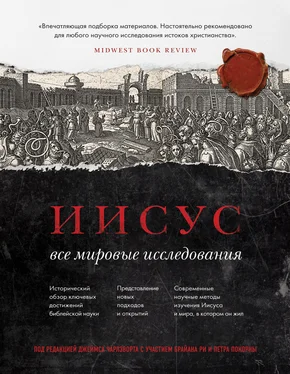
![Коллектив авторов - Что мы думаем о машинах, которые думают [Ведущие мировые ученые об искусственном интеллекте]](/books/31211/kollektiv-avtorov-chto-my-dumaem-o-mashinah-kotorye-thumb.webp)
